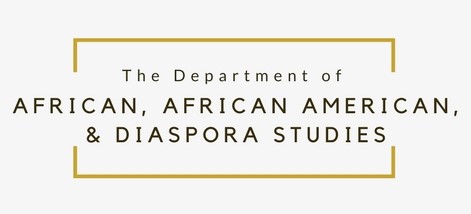Wolof Curriculum
Wolof
Wolof is a West Atlantic language spoken in Senegal, The Gambia, and Southern Mauritania. Modern migration, business, and trade have taken the language to some parts of Guinea, Guinea-Bissau, and Mali. Wolof is also largely spoken by Senegalese immigrants in the US and Europe. Despite the ethnolinguistic diversity of the Senegambia region – Pël, Sééréér, Mandinka, Soninke, Joola, etc. – Wolof dominates as the lingua franca and as the major communication tool across the different ethnic groups. Unlike several African languages, Wolof is not a tonal language. Wolof has a long tradition of writing using the Arabic script known as “Ajami” or “Wolofal”. Wolof Ajami literature remains popular and is still composed and chanted by millions of West African Muslims. Beginning in the 1970s, Wolof writing has been standardized to the Roman alphabet, which is used in all formal Wolof language instruction.
Wolof language and culture has had the most observable impact throughout the Senegambia region. While only about 37% of the Senegalese population are ethnically Wolof, over 80% of the people speak the language as their first, second or third language. The extent of Wolof influence can be observed across the religious, social, economic, and political spheres; and Wolof has been used as an effective medium of communication in radio and television broadcasts. Like many languages, Wolof has its own regionalisms. The pronunciation of some words may differ from one country region to another just as Senegalese and Gambians may speak the same Wolof word differently. Those variations, however, are mutually understandable across rural and urban divides and across countries. Wolof is not a static language and urban the dialect spoken primarily by the youth and Europhone literates has been known for its adaptation of and infusion with French, English and, to a lesser degree, Arabic.
Culturally, the influence of the Wolof language remains observable through mbàllax (or mbalax) popular music, which has gone international thanks to superstars like Youssou Ndour, Thione Seck, Omar Pene, and Cheikh Lo who have spread its beats through Europe, US and far beyond. Writer and “father of African cinema” Ousmane Sembene transported the Wolof language to an international audience with his critically acclaimed films including, Borom Sarret, Black Girl, Ceddo, Guelwaar, Camp Thiaroye, Faat Kiné, and Moolaadé. Other cultural interests in Senegal include lámb(Senegalese traditional wrestling), ceebu-jën (the country’s main dish), and àttaaya (a Senegalese special tea). Known for their teraanga (hospitality) and generosity, the Senegalese often welcome friends and guests with conversation around three rounds of àttaaya. These keep the lively talk going and can last for hours. Additionally, it is difficult to talk about the Senegalese Wolof or Senegalese people, in general, without mention of the observable influential Muslim brotherhoods (Muridiyya, Tijaniyya, Layeen, and Qadiriyya). Islam has significantly influenced Senegalese culture, and about 94% of the population identify as Muslim. The Sufi Muslim majority has always co-existed peacefully with the country’s dynamic Christian minority.
The Wolof language itself is fascinating and easy to learn. Unlike several Roman languages, Wolof is an oral language. You write only what you hear! Wolof is an entry gate to West African Studies for various reasons. Indeed, the Wolof language facilitates travel, research, study, and work in the Senegambia region. Wolof allows visitors to easily integrate in the Senegambian society and culture, and it helps convey messages, especially when those are important. Wolof people are very appreciative of foreigners who know even basic Wolof. Airport personnel, taxi drivers, street hawkers, and university students see the smallest attempt to speak Wolof – not the colonial French language – as a tremendous effort to integrate. Indeed, learning Wolof should be a priority for those planning to travel to Senegal, Gambia and the neighborhood. Read more about Senegal.
Wolof Courses at UNC-Chapel Hill
Undergraduate and graduate courses are offered in Wolof at the Elementary, Intermediate, and Advanced levels. Students enrolled in Wolof language are taught Wolof greetings and cultural codes, vocabulary, grammar, literature, culture, and tradition with an emphasis on building strong communication skills gradually. Students acquire Wolof cultural competence through various interactive classroom activities, discussions, dramatizations, films, novels, and poetry.
Elementary Wolof I (WOLO 401). 3 Credits.
This course enables students who have no previous experience in Wolof to develop speaking, listening and understanding, writing, and reading skills in Wolof. Students will also be exposed to Wolof culture.
Gen Ed: FL.
Grading status: Letter grade.
Elementary Wolof II. (WOLO 402). 3 Credits.
This course is for students who have already acquired the basics of Wolof to reinforce their ability to learn speaking, listening and understanding, writing, and reading Wolof. Evidence of basic knowledge of Wolof is required.
Requisites: Prerequisite, WOLO 401.
Gen Ed: FL.
Grading status: Letter grade.
Intermediate Wolof III. (WOLO 403). 3 Credits.
This course is intended for learners who have already acquired Wolof proficiency in WOLO 401 and 402. It increases communicative proficiency and language learning ability as well as proficiency in cultures of the Wolof people.
Requisites: Prerequisite, WOLO 402.
Gen Ed: GL; FL.
Grading status: Letter grade.
Intermediate Wolof IV. (WOLO 404). 3 Credits.
This course reinforces students’ communicative and cultural skills via gradual exposure to increasingly challenging tasks. Reading poetry and prose, and introduction to creative writing will be stressed.
Requisites: Prerequisite, WOLO 403.
Gen Ed: FL.
Grading status: Letter grade.
Advanced Wolof V. (WOLO 405). 3 Credits.
This course is intended for learners who have acquired Wolof proficiency in WOLO 403 and 404. It provides students with the communication and linguistic skills needed to communicate fluently at the near-native level.
Requisites: Prerequisite, WOLO 404.
Grading status: Letter grade.
Advanced Wolof VI. (WOLO 406). 3 Credits.
This course is intended for learners who have acquired Wolof proficiency in WOLO 405. It provides students with the advanced communication and linguistic skills needed to communicate fluently at the native level.
Requisites: Prerequisite, WOLO 405.
Grading status: Letter grade.

